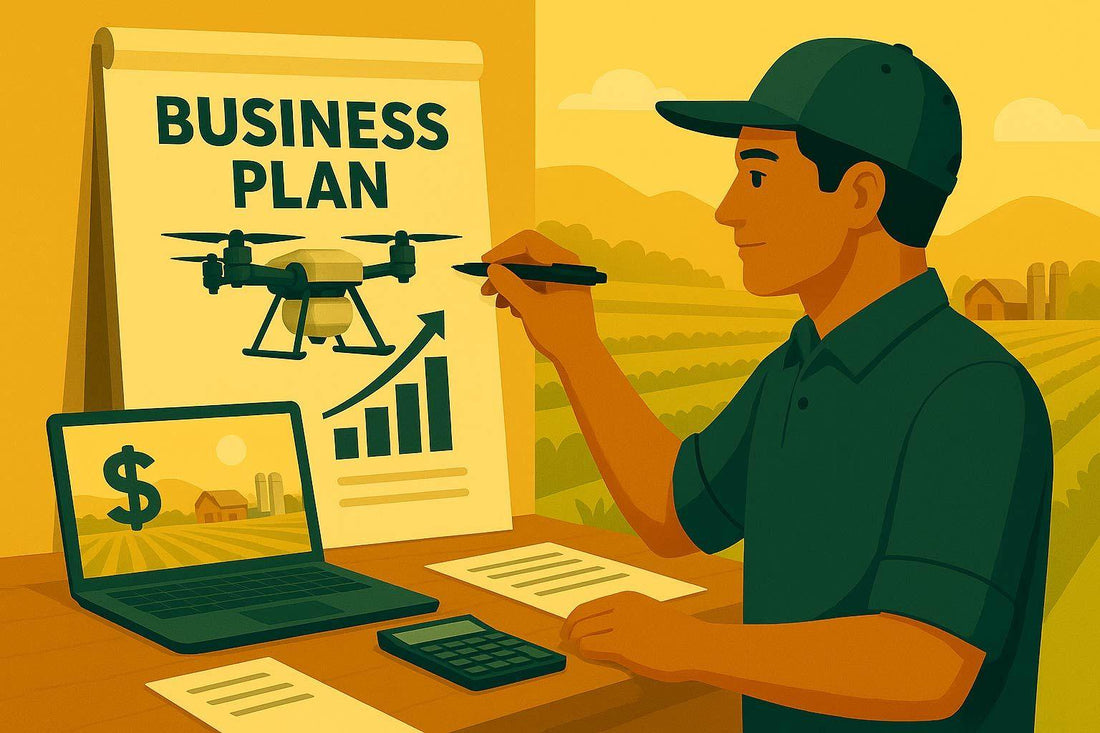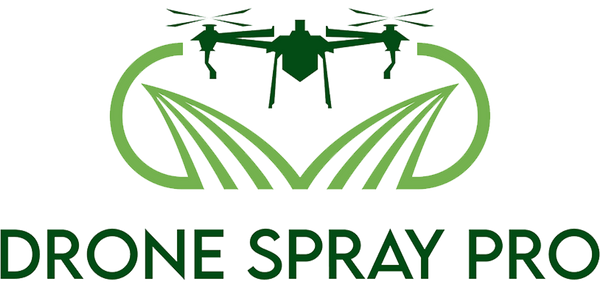
How to Build a Profitable Agricultural Drone Business
Share
Agriculture is undergoing a transformative era, and drones are at the heart of this evolution. Once seen as futuristic tools, agricultural drones have now become indispensable to modern farming. In this article, we explore how two young brothers, Hayden and Camden Chrome, from southern Ohio, started and scaled a thriving agricultural drone business. Their journey is not only an inspiring example of youthful entrepreneurship but also a guide for anyone looking to enter this burgeoning industry.
Introduction: The Rise of Drones in Agriculture
Agricultural drones are revolutionizing farm management by offering precision spraying, efficient crop monitoring, and sustainable resource application. For farmers and tech-savvy entrepreneurs, drones present an opportunity to increase efficiency, reduce costs, and improve environmental sustainability. Hayden and Camden's story highlights how innovation and determination can create a thriving business, even from a young age.
This article dives into their journey - how they got started, overcame challenges, and found success. Whether you're a farmer looking to use drones on your fields or an entrepreneur exploring drone-based services, their insights will serve as a valuable resource.
From Family Farm to High-Tech Innovation
Hayden and Camden Chrome’s roots in agriculture run deep. The brothers come from a farming family with a heritage spanning nearly 200 years. Their business began as a response to challenges they faced on their own farm. Five years ago, they saw the need for aerial application to manage their crops more efficiently - a service traditional helicopters couldn’t reliably provide due to the terrain in their region.
Instead of relying on outside help, Hayden and Camden took the bold step of purchasing their first drone and launching their business. They started young - at just 16 and 18 years old - learning through trial and error while balancing farm work, high school, and college responsibilities.
"Opportunity doesn’t knock twice", Hayden said, emphasizing their father’s mantra that gave them the push to seize the chance and enter the agricultural drone industry.
Overcoming Challenges: Lessons from the Early Years
Starting an agricultural drone business at such a young age posed unique challenges:
1. Establishing Credibility
As teenagers, earning the trust of established farmers wasn’t easy. Many skeptics doubted their capabilities or dismissed them due to their age. The brothers combated this by focusing on results - proving the effectiveness of drone spraying through field trials and open communication with their clients.
"If you can have an intelligent conversation about how this will make a farmer money, you’ll gain their trust", Hayden explained.
2. Defining Roles
Early on, the brothers struggled with overlapping responsibilities. Over time, they discovered their natural strengths and divided tasks accordingly. Hayden handles accounting, billing, and application, while Camden focuses on technical repairs and troubleshooting. This balance of skills has been key to their operational success.
"It’s a yin-and-yang type of relationship", Camden remarked, highlighting how their differences complement each other.
3. Adapting to Technology
The rapidly evolving drone industry requires constant learning. Every year brings new drone models and features, which means updating equipment, learning new systems, and managing inventory for parts. While challenging, this adaptability has allowed them to stay ahead of the competition.
Diversifying Services: Beyond the Farm
While their initial focus was crop spraying, Hayden and Camden quickly realized the potential for drones in other applications. They’ve since expanded their offerings to include:
- Cover Crop Seeding: Using drones to distribute cereal rye and other cover crops over standing fields helps reduce soil erosion and improve nutrient retention.
- Invasive Species Management: Spraying herbicides from drones to eliminate honeysuckle and other invasive plants in forests and wetlands has opened new markets beyond traditional farming.
- Utility Corridor Maintenance: The duo has begun spraying herbicides along powerline rights-of-way, a niche but growing industry need.
- Food Plot Preparation: For hunters, they offer seeding and burndown applications to create wildlife food plots.
These diversified services not only increase revenue but also ensure year-round business activity, bridging the gaps between traditional spraying seasons.
Advice for Aspiring Entrepreneurs
Hayden and Camden’s success provides valuable lessons for anyone considering a career in agricultural drones:
1. Start Small but Dream Big
The brothers began with one drone and a small personal loan. Over time, they scaled their operations to include five drones and multiple crews. Their advice? Don’t be afraid to take risks but start within your means.
2. Seek Help and Build Relationships
Networking played a crucial role in their journey. They leveraged contacts within their farming community, local Farm Bureaus, and trade shows to secure clients and learn from industry veterans.
3. Find Your Niche
Whether it’s cover crops, invasive species management, or traditional crop spraying, focus on mastering one area before expanding. Specializing builds credibility and expertise.
4. Be Prepared for Hard Work
Running a drone business is demanding. From long hours in the field to learning complex technology, success doesn’t come easy. According to the brothers, a 40-hour work week is a myth in agriculture - dedication and persistence are essential.
5. Communicate and Collaborate
For those working in partnerships, open communication is vital. The brothers emphasize the importance of addressing problems early and focusing on shared goals.
"Petty differences can’t get in the way of achieving something bigger than both of us", Camden said.
Key Takeaways
- Drones are a game-changer in agriculture, offering precision, efficiency, and sustainability.
- Credibility takes time but is built on results. Focus on delivering value to clients through accurate, cost-effective applications.
- Diversification ensures stability. Explore opportunities beyond crop spraying, such as invasive species management, wetland restoration, or cover crop seeding.
- Networking is essential. Build relationships with local farm organizations, trade shows, and industry leaders to access resources and grow your business.
- Adapting to technology is non-negotiable. Stay updated with the latest drone innovations to maintain a competitive edge.
- Entrepreneurship is demanding but rewarding. Be prepared for hard work, long hours, and constant learning.
- Don’t let age be a barrier. With the right mindset and determination, young people can achieve incredible success in agriculture.
Conclusion: Pioneering the Future of Farming
Hayden and Camden Chrome’s journey demonstrates the immense potential of agricultural drones. Their ability to combine farming expertise with cutting-edge technology has not only improved their family business but also opened doors to new markets.
For farmers and entrepreneurs alike, their story underscores the importance of innovation, adaptability, and hard work. As the agricultural drone industry continues to expand, there’s no better time to explore its opportunities. Whether you’re looking to enhance your own farming operations or start a new business, the possibilities are endless - if you’re willing to take the leap.
Source: "The Next Generation" - Farm-i-tude Precision Agriculture, YouTube, Sep 15, 2025 - https://www.youtube.com/watch?v=D6QWDDHP9M0
Use: Embedded for reference. Brief quotes used for commentary/review.
